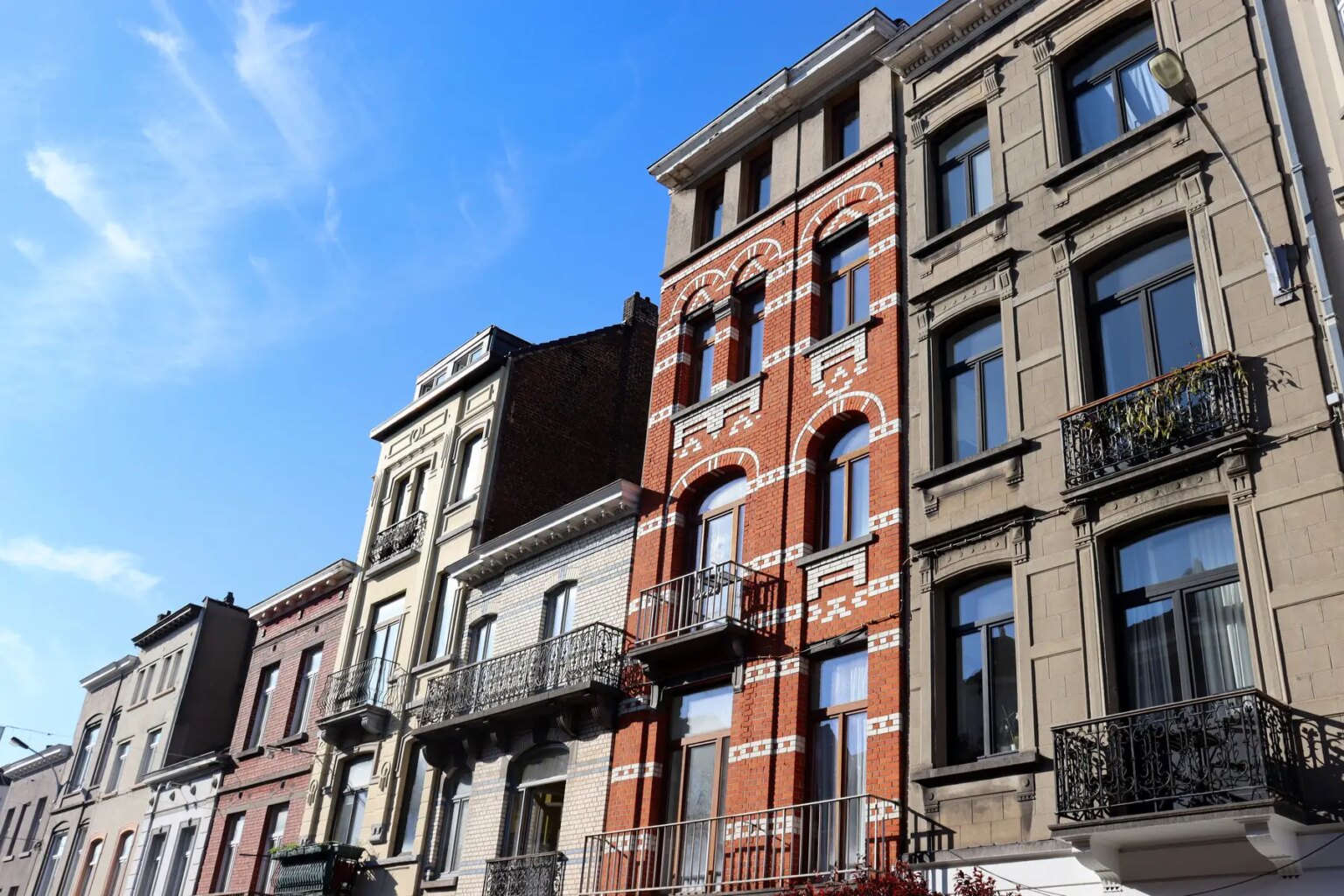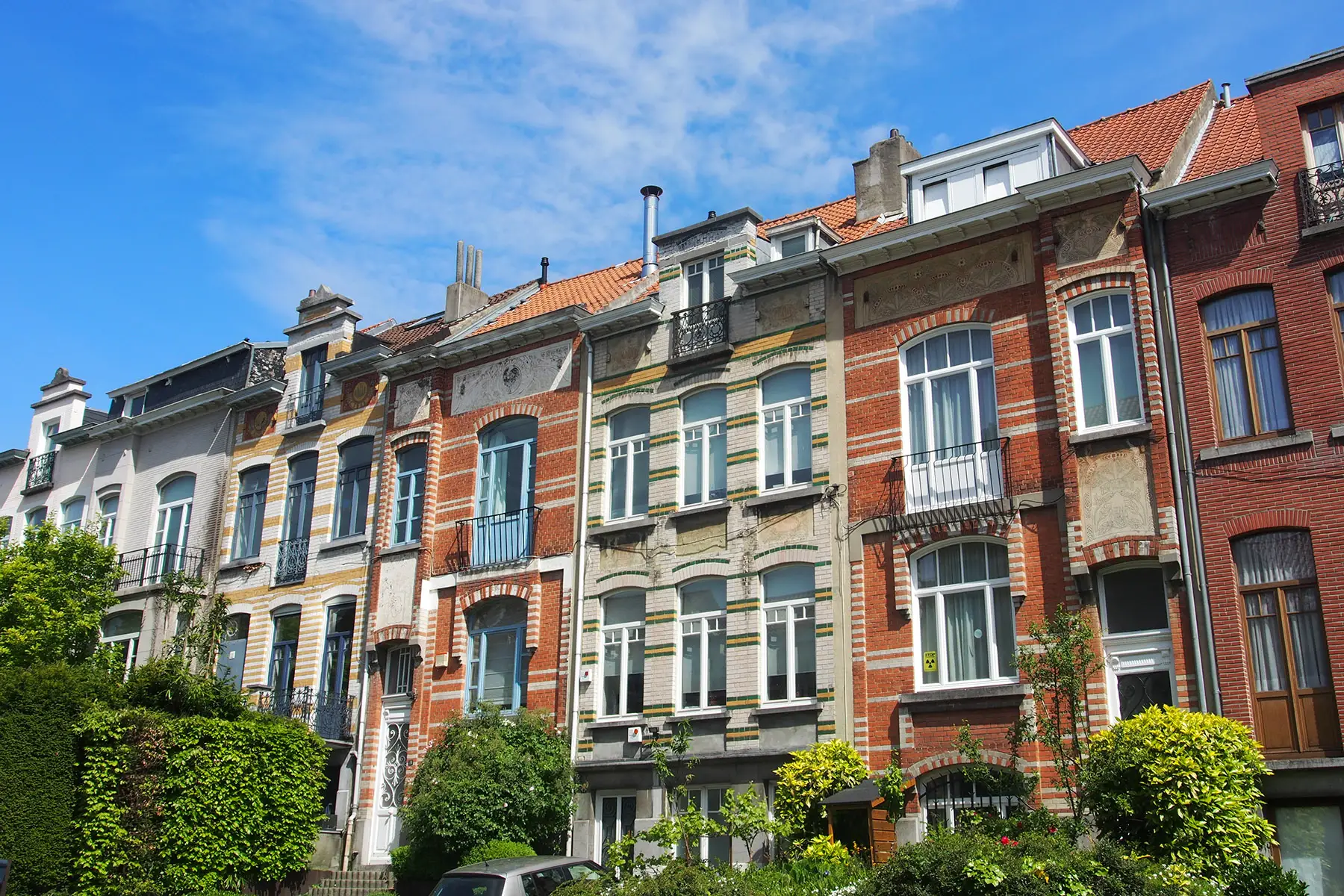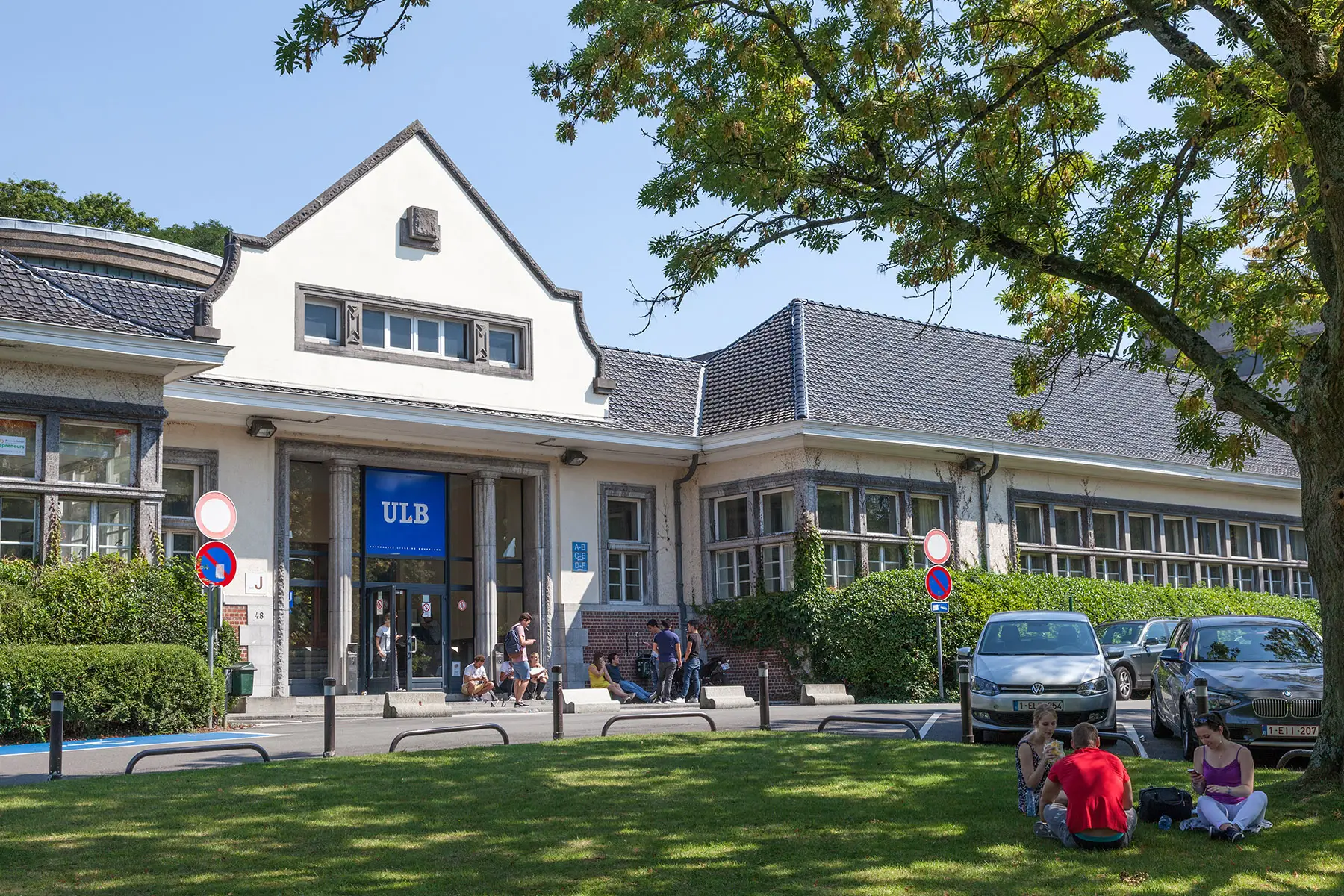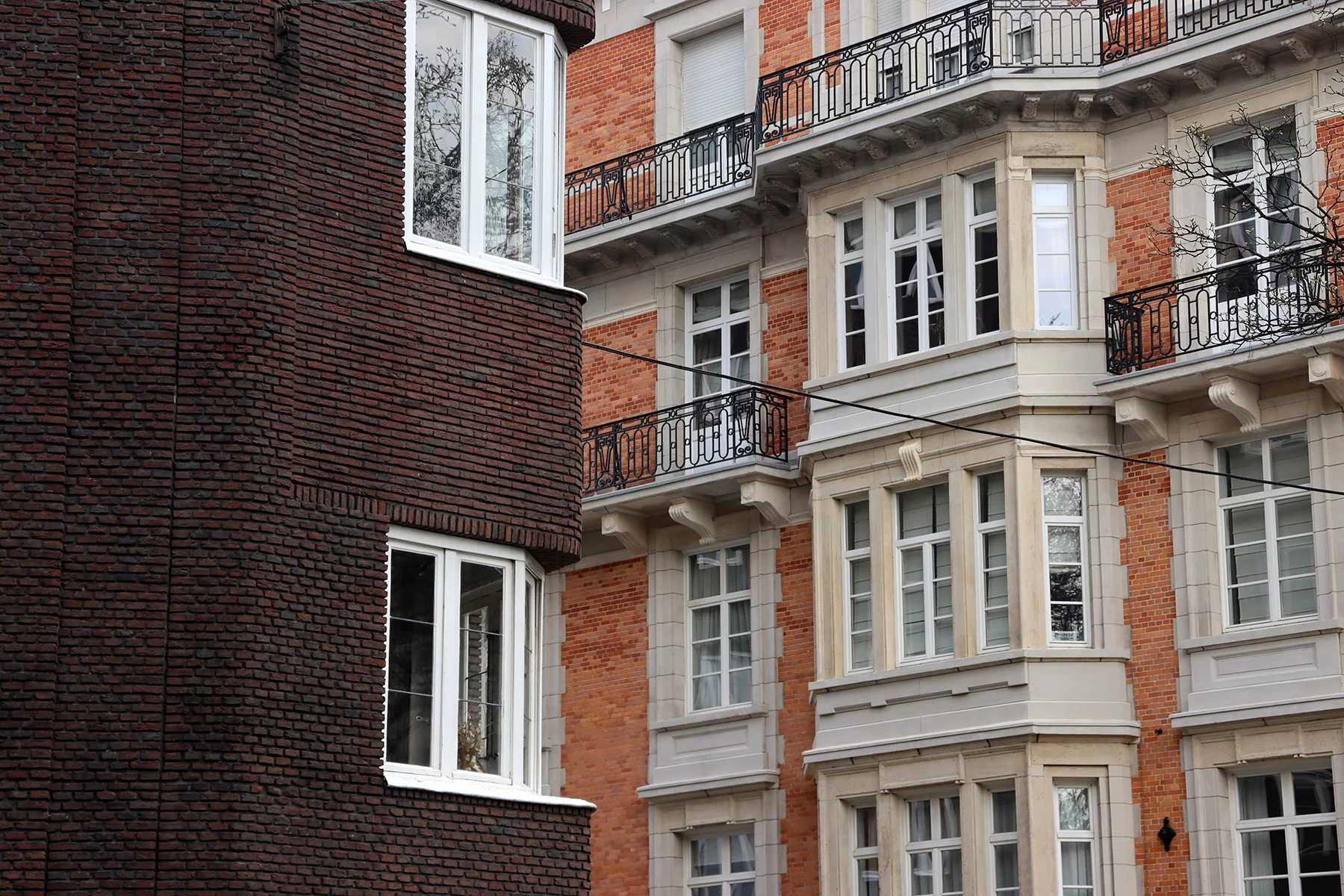If you’ve decided to move to Belgium, then finding a house or apartment will be one of the first priorities. Fortunately, Belgium has a well-regulated rental market with plenty of properties to let. Moreover, the process for renting is relatively hassle-free, with clear rules set out for both landlords and tenants. All this makes renting an attractive option for expats compared to buying a house in Belgium.
This article provides an overview of the regulations and process for finding and renting a property in Belgium, including information on:
- Renting in Belgium
- Popular places to rent in Belgium
- Buying vs renting in Belgium
- Types of property to rent in Belgium
- Finding a place to rent in Belgium
- Student housing in Belgium
- How to rent a property in Belgium
- Rental costs in Belgium
- Social housing in Belgium
- Tenancy contracts in Belgium
- Tenancy rights and obligations
- Utilities and telecommunications in Belgian rentals
- Moving in and moving out
- Renting out your home in Belgium
- Useful resources
BBF Apartments
Looking for temporary accommodation in Belgium? Try BBF Apartments. With almost 30 years of experience, their team of property experts offers flexible solutions to the city’s expat community. Whether you need a city center studio or family-friendly flat, BBF Apartments can find your next temporary home.
Renting in Belgium
Luckily for expats, housing costs in Belgium are generally far more affordable than in neighboring countries, Germany and the Netherlands. On average, Belgians spend around 18% of their disposable income on housing, with 28.7% of the population opting for rental accommodations.

Belgium has seen a rise in rental prices for houses and spacious apartments during the COVID-19 pandemic. However, compared to other European countries, rental prices in the country remain relatively low, sitting closer to those in Portugal and Spain than in the UK. The highest rental prices in Belgium, which are in Brussels, are also in line with the EU average.
Rental accommodation in Belgium is typically leased out long-term, starting at three years, which encourages tenants to settle down. Nevertheless, it is relatively easy to find accommodations to rent, particularly in Brussels, where expats on short-term assignments frequently move out.
Popular places to rent in Belgium
Brussels has always been the top choice for renting in Belgium. However, higher rental prices in the capital city have motivated people to explore areas farther afield. Below is a brief overview of the rental market in some popular Belgian cities and towns.
Brussels
There are several perks to renting in Brussels. As the hub of the EU, the city is home to many international residents and has several English-speaking services and groups for expats. In fact, around 18% of the city’s tenants are from abroad.
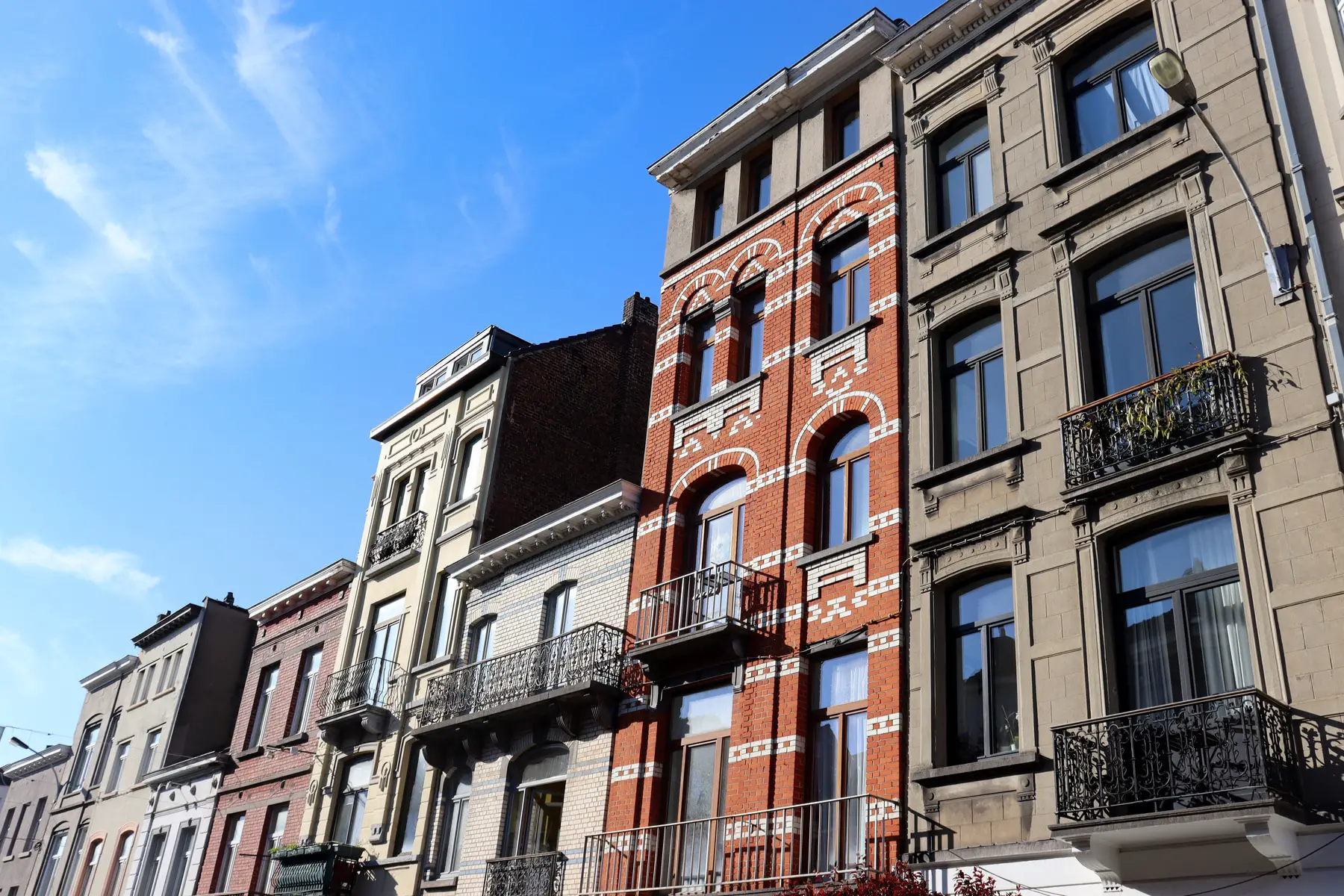
Fortunately, it is fairly easy to find an apartment or room to rent in Brussels. However, rents in the capital are the highest in Belgium and range from between €1,000 and €1,500 in the city center. In most cases, you will need to sign a three-year lease agreement, but for shorter leases, you can look at renting serviced apartments or co-living spaces.
Rental accommodations and contracts in Brussels must follow the norms that are set out in the Brussels housing code. For more information on rental options and where to stay in the city, you can read our article on the best neighborhoods in Brussels.
Around Brussels
If you’re looking for more space and greenery, then Tervuren and Genval, towards the eastern edge of Brussels, are great alternatives. Moreover, Brussels is easily accessible by public transport from both localities. That said, rental options in these areas can be expensive given their popularity with both expats and locals.
A cheaper but equally well-connected option is the university town of Leuven. This is home to residents from over 171 nationalities and is one of the most English-friendly cities in Belgium. Furthermore, it’s just a 20-minute train ride from Brussels.
Antwerp
Often seen as Belgium’s trendiest city, Antwerp is home to some big names in fashion and a lively electronic music scene. Although Dutch is the main language, most people can also understand and speak French and English.

The city offers excellent train connectivity to Brussels as well as cities in the Netherlands, such as Rotterdam and Amsterdam. Moreover, rental prices are almost 25% lower than in Brussels, and the city center is compact enough to reach everywhere by foot or bike. For more information on where to stay in the city, you can read our article on the best neighborhoods in Antwerp.
Buying vs renting in Belgium
Clear regulations and the wide choice of properties often make renting an attractive option for expats compared to buying a house in Belgium.
Lease agreements are typically long-term, beginning with three years, and provide tenants with several legally protected rights. Tenants in Belgium also have greater freedom to redecorate and improve the property. This means that many tenants have a similar level of satisfaction to owning a house or apartment, minus the mortgage.
In contrast, transaction costs are high when buying a house in Belgium, and are typically between 15% and 25% of the purchase price. So although the average house price is relatively low in the country, it can take a long time to recover the transaction costs of buying a property. For this reason, it is usually not worth buying unless you plan to stay in the country for a longer period of time, typically five years or more.
Types of property to rent in Belgium
Unfurnished residential apartments
It is relatively easy to find spacious, one- and two-bedroom apartments for rent in all Belgian cities. City centers mostly contain old townhouses that are split up into individual apartments with a shared entrance and staircase.
Apartments are typically rented unfurnished and without curtains and carpets. Recently renovated apartments may come with light fittings and an in-built kitchen with a refrigerator and oven. However, this is not always the case, so it’s a good idea to ask the estate agent to avoid any unpleasant and potentially expensive surprises later on.
If you have a preference for more space, light, and modern fittings, it may be worthwhile looking at newer apartment blocks. Areas such as Nieuw Zuid and Het Eilandje in Antwerp offer private rentals in newer buildings. Meanwhile, in Brussels, you can find these in neighborhoods such as Ixelles and Auderghem.
Short-term, serviced apartments
If you’re in a hurry to find a place or are just moving to Belgium for a few months, you can look at renting a furnished, serviced apartment. These offer flexible leases, instead of the standard three-year lease agreement, and provide many amenities. Some Belgian rental agencies providing furnished, serviced accommodations include:
Spotahome
Looking for somewhere to rent in Belgium? Spotahome takes the hassle out of househunting by doing the hard work for you. Their online platform lets you find, view, and book rental properties all from the comfort of your own home. Take the stress out of househunting in Belgium with Spotahome.
Single-family homes and townhouses
One of the benefits of renting in Belgium is that it is often possible to find entire houses for rent. As you move out toward the suburbs, you can find two-story townhouses and single-family homes complete with a garden.
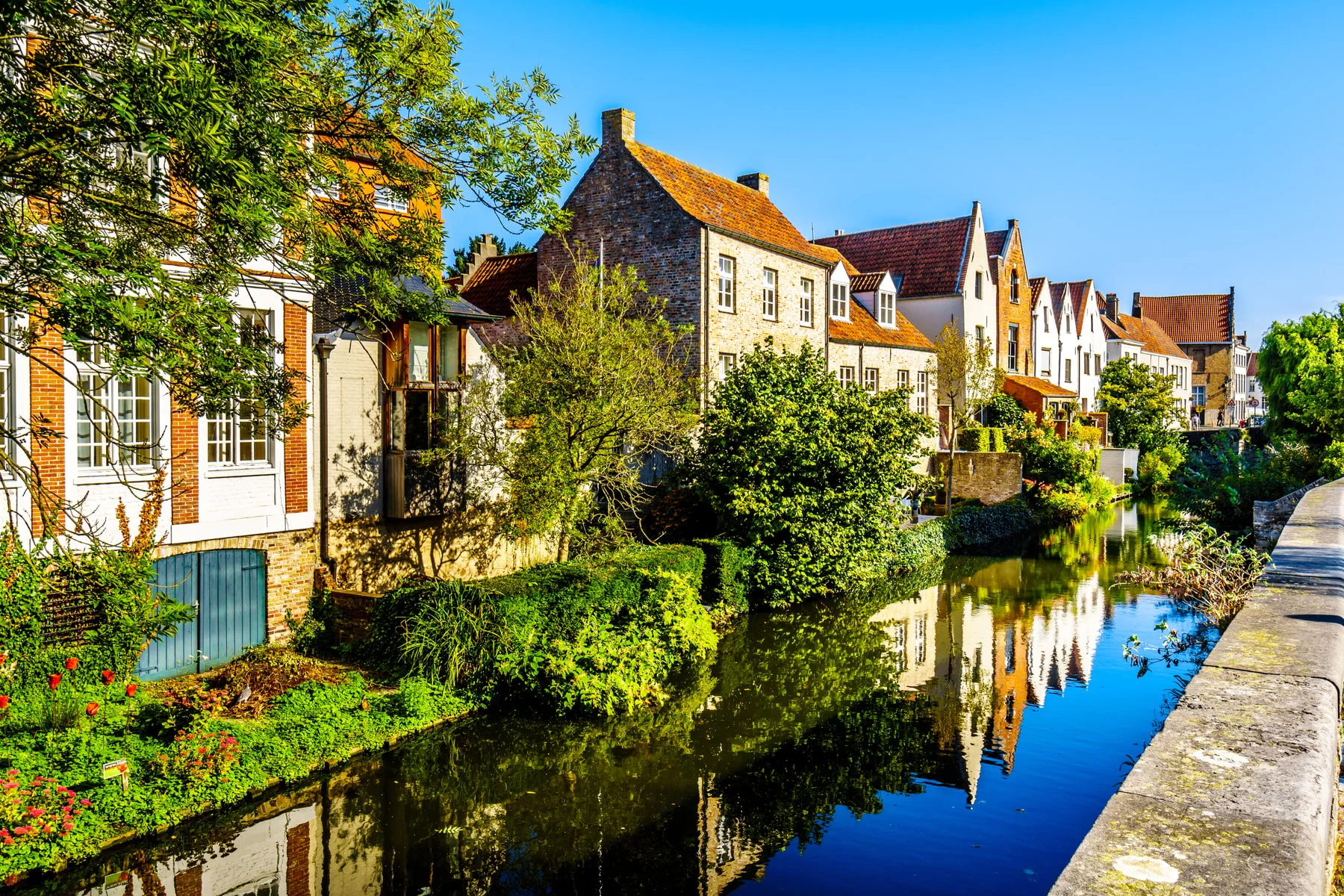
House rentals can range anywhere between €800 and €3,000 depending on the location and the size and type of house.
Shared flats and co-living spaces
Another alternative you can look at is flat-sharing and co-living spaces. These offer a great way to save money and meet people when you move to a new city. Locations such as Morton Place in Brussels offer individual bedrooms for rent in houses with communal kitchens and social areas.
There are also several online portals where you can view advertisements for flats to rent. These include:
You can also read our article on how to use a homestay network to find accommodation if you’re in Belgium for a shorter stay.
Finding a place to rent in Belgium
There are two main options when it comes to finding a place to rent in Belgium. You can either use a real estate agent (Dutch: immokantoor, French: agences immobilières) or an online property portal.
Rental agencies
English-speaking estate agents are common, particularly in Brussels, and can help new arrivals cut through the language barrier. Estate agents receive commissions from property owners to find suitable tenants.

You can let the estate agent know if you are keen on any of the properties on their list. They will then contact the owners and make viewing appointments. They may even be willing to drive you to visit properties, which is ideal if you are still finding your way around. The landlord pays the estate agent’s commissions, therefore, be wary of any agent charging an up-front or signing fee.
There are also specialized rental agencies that may require you to register with them. You can provide them with your requirements and they will do the house hunting for you and provide you with listings that meet your preferences. However, you may have to arrange viewings and negotiate a lease yourself or pay for additional services.
Some of the expat-friendly rental agencies in Belgium include:
Online property portals
It is quite common in Belgium to advertise rental properties online, and there are several online portals where landlords can directly advertise them. Additionally, estate agents often advertise properties listed with them on online portals for wider reach.
Searching online will help you get a feel for the options and prices available. Most adverts include an estimate of the living space in square meters and the number of bedrooms and other amenities the property offers. They also include the rent price.
Some of the biggest online Belgian property portals are:
Student housing in Belgium
If you are planning to study in Belgium, you can rest easy knowing there are several different options available for student accommodation. In fact, Belgians even have their own word for a student room, which you will often hear them refer to as a kot.

Online property portals such as Immoweb and Spotahome offer options to search for student apartments. Next to these, Belgium has many rental agencies and online portals specializing in kot rentals.
Some of these portals include:
Students can choose between renting a room in a shared house or apartment, or renting a private studio. Additionally, most universities in Belgium offer student accommodation. On average, renting a room in a university hall of residence costs €200 to 400 per month, while private rentals can range between €400 and €600.
Some universities also offer special accommodation for students with disabilities. Moreover, university residence halls provide rental contracts for 10 months so that you don’t have to pay rent during the summer. In contrast, private rental contracts are usually for a period of 12 months. You can find out more about tenancy agreements and rights in the regional housing codes for Brussels, Flanders, and Wallonia.
How to rent a property in Belgium
Renting through a property agency
You can get in touch with estate agents directly to view a property advertised by their agency. Property owners typically hire estate agents to rent out their vacant property and perform certain property management duties. For instance, they will arrange the viewing and conduct background checks and tenancy agreements.

Estate agent commissions are paid by the property owners. However, if you enlist the help of a rental agency to help you find a property, you will likely have to pay them a fee for their services.
In most cases, you will have to let the agent know if you are interested in the property within a few days after the viewing. Additionally, you will be required to provide the following documentation:
- Copy of your passport
- Proof of earnings, such as bank statements or savings
- For non-EU/EEA residents, proof of Belgian residency status, such as a Belgian residence permit or long-stay (category D) visa
You may also occasionally be required to provide references, or if there is more interest in the property, a brief description of your background to help the owner make a selection.
Renting directly through a private landlord
It is also possible to rent a house or apartment directly through a landlord. Like estate agencies, landlords often list their vacant rooms, apartments, or houses on online property portals. They may also put up a ‘to let’ (Dutch: te huur, French: à louer) sign on the doors and windows of the vacant property. Therefore, it is a good idea to keep an eye out for these if you are in a neighborhood you would like to stay in.
The process for viewing and negotiating a lease is the same as when using an estate agent. If you are renting directly from a landlord, make sure you have a written contract in line with the regional housing code for Brussels, Flanders, and Wallonia.
Rental costs in Belgium
Rental costs in Brussels have risen substantially in recent years and average over €1,000 a month. However, this can increase to over €1,500 a month if you look for three bedrooms or more, or search in more upmarket areas, or in the city center. Rents for the same type of apartments are lower in Antwerp, ranging from €750 to €1,250 in the city center. However, it is possible to find similar apartments at lower costs in other Belgian cities such as Bruges or Ghent.
Besides monthly rent, there are other additional costs you will need to keep in mind when planning your rental budget.
Service fees and utilities
Most housing associations charge a monthly service fee for cleaning and repairs of shared spaces, such as entrances and staircases. The fee can range from €50 to €100.
In Belgium, utilities are paid by the tenant. These typically cost around €200 per month for an 85 square-meter apartment (electricity, energy, water, and internet). Landlords may arrange some or all of these utilities for their tenants. In any case, the tenancy agreement should have all service and utility costs clearly specified.
Rental deposit
The rental security deposit in Belgium is typically either two or three months’ rent. It is important to set up a bank transfer for this as landlords are not permitted to request this money in cash.
The rental deposit must be held by the landlord in a separate blocked account in the name of the tenant. In fact, financial institutions like Korfine in Belgium engage primarily in managing rental deposits. Notably, tenants earn a small amount of interest on their deposits, and the interest and the deposit are paid back once the lease has ended.
Inventory report
At the beginning of the rental lease, the contents and condition of the property are surveyed and recorded in writing. The inventory report has to be drawn up before the end of the first month of the lease. Moreover, both the landlord and tenant must be present or represented when the inventory is drawn up and they sign the report.

To maintain neutrality, most estate agencies work with external surveyors to draw up the inventory. External surveyors cost between €300 and €400 and these costs are split equally between the landlord and the tenant. It is also possible for the landlord and the tenant to draw up an inventory report together to reduce costs.
Insurance
Tenants in Belgium are required by law to take out fire insurance. This often covers other types of damage as well, such as water or storm damage. The monthly costs for the insurance are between €8 and €10 on average, depending on the rental property. You can also get coverage from providers such as Flora for damage or loss of personal items in case of break-ins. You can read more about this in our article on home insurance in Belgium.
Help with costs
Tenants who require financial support with advancing the rental deposit can apply for an interest-free security deposit loan with the housing fund in their region:
- Flanders: Vlaams Woningfonds
- Brussels: Fonds du Logement/Woningfonds Brussels
- Walloon: Wallonie logement SWCS
Social housing in Belgium
Social housing associations in Belgium provide affordable apartments and houses for rent for single people and families with limited means. To apply for social housing, you will need to register with the social housing association in your region:
- Flanders: De Vlaams Maatschappij voor Sociaal Wonen (VMSW)
- Brussels: De Brusselse Gewestelijke Huisvestingsmaatschappij (BGHM)/ La Société du logement de la Région bruxelloise (SLRB)
- Wallonia: La Société wallonne du Logement (SWL)
Housing associations have long waiting lists, and you will be required to meet certain conditions. These lengthy waiting times don’t make this a viable option for expats or students. However, there are rental subsidies available for people who require assisted living or need to move into an adapted house.
Tenancy contracts in Belgium
There are four kinds of tenancy agreements (Dutch: huurcontract, French: contrat de bail) in Belgium, as follows:
- Short-term (three years or less)
- Nine years
- Longer than nine years
- Lifelong
The nine-year contract is the standard option in Belgium. It is often called a 3-6-9 lease as it only allows the landlord to increase the base rent once every three years.
Three-year vs nine-year contracts
Typically, expats only undertake either short-term or nine-year contracts. In general, a short-term contract will:
- be of a fixed duration
- last for no more than three years
- impose a penalty for giving notice before the end of the contract
- have a three-month notice period
Notably, a short-term contract converts into a nine-year contract if it renews for a second time or the tenancy continues after three years.
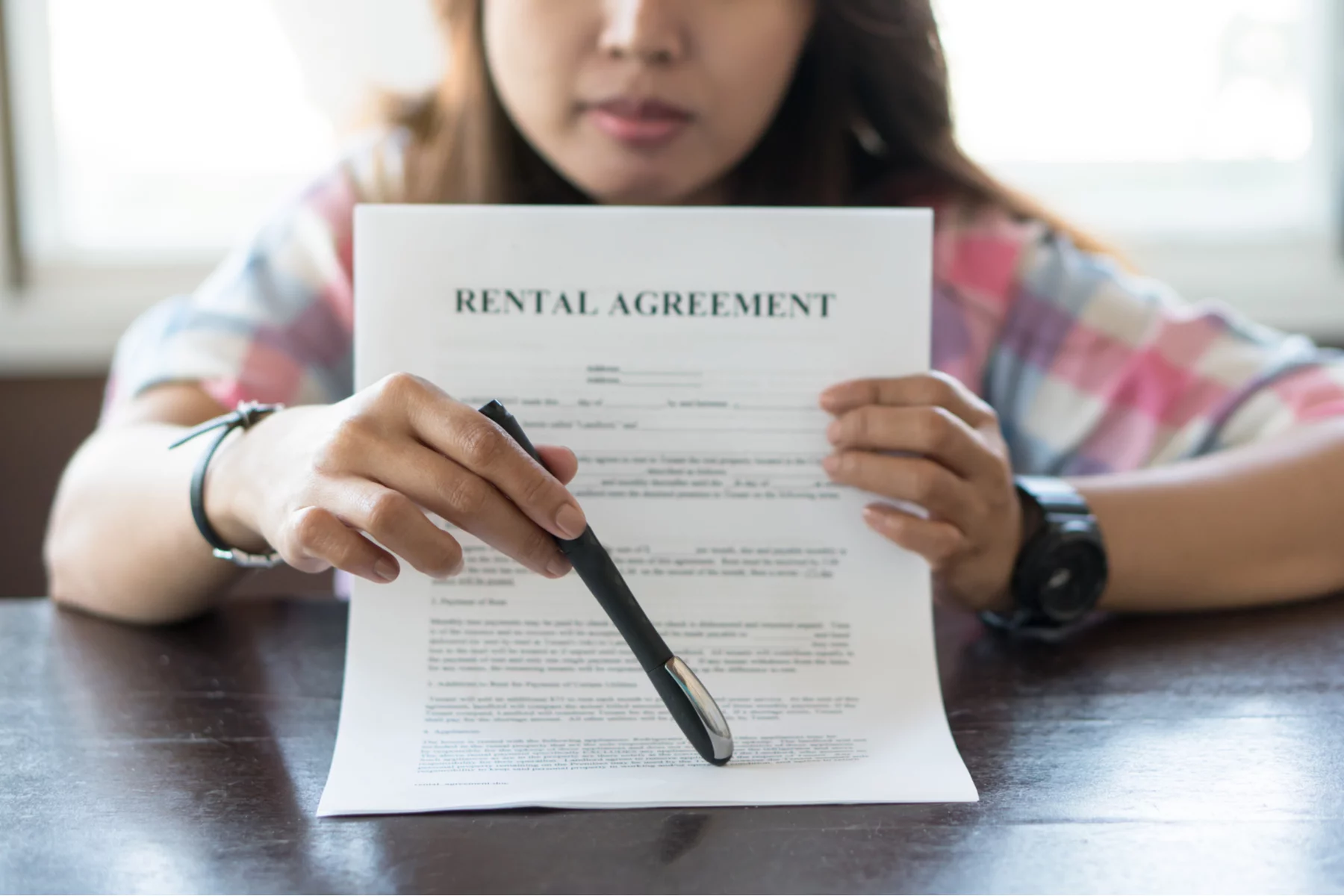
A nine-year contract may seem unusual to someone who is moving from a place where a 12-month contract is considered to be long-term. However, it doesn’t mean that you must stay in or pay for the property for the entire duration of the contract. In fact, a nine-year contract can be more flexible if you plan on renting in Belgium for longer than three years.
A nine-year contract will typically:
- allow the tenant to give notice at any time
- impose a penalty for giving notice only in the first three years
- allow a rent increase only once every three years
- have a three-month notice period
Notice period
Both the three- and nine-year contracts require the tenant to give three months’ notice. In a three-year contract, the penalty for giving notice before the end of the lease is as follows:
- 1.5 months’ rent in the first year
- One month’s rent in the second year
- Half a month’s rent in the third year
However, the penalty for giving notice in the first year of a nine-year contract is three months’ rent. In the second and third years, the penalty is two and one months’ rent, respectively. However, no penalties are charged after the first three years.
Notably, the landlord cannot terminate a short-term contract before the end of the agreed period. However, in nine-year contracts, landlords can give tenants notice to leave during the contract. That said, they must give six months’ notice and either intend to occupy the property themselves, house a family member, or undertake major works. There is also often a penalty of several months’ rent to the landlord for giving the tenant notice to leave.
Signing the contract
In Belgium, a tenancy agreement must be a formal contract in writing. Verbal agreements made before 2007 are still valid, but tenants can request that these be drafted in writing. You can find model tenancy agreements on the websites of the different regional housing boards (in Dutch).
Each rental agreement has to be registered, and as a result, you should expect to sign at least three separate but identical copies of the lease agreement: one for you, one for the landlord/agent, and one for the local registry office (Dutch: registratiekantoor, French: bureau d’enregistrement). Only contracts that are longer than nine years have to be signed in the presence of a notary.
Registering the lease
The lease must be registered within two months of it being signed. Registering the lease is legally the duty of the landlord (or estate agent on behalf of the landlord). The process is free, so you shouldn’t pay extra for this service. The inventory report must also be registered with the same authority, and this is typically at the same time.
Rental increases
Rental prices in Belgium can increase annually in line with the consumer price index (CPI). You must be informed of this increase in writing each year. If this happens, the landlord can charge you the cost of the increase for the previous three months.
This means that every year, around the anniversary of you moving in, you will get a rental increase or decrease (the latter are rare) and will have to pay a small extra sum to your landlord. In addition to the annual CPI increase, the base rent can be increased every three years.
Tenancy rights and obligations
Tenant rights and obligations
Belgium has strong tenants’ rights. And although the three- and nine-year contracts may seem inflexible, they provide a secure lease which makes it difficult for the landlord to evict a tenant without good reason. For example, the landlord cannot simply terminate a contract on account of rent arrears. In such cases, the contract can only be ended by a legal process.
All tenants have the right to request an extension of their lease. There are only limited reasons under which the landlord can refuse this request. Moreover, if the building is sold or inherited, the new owner must respect the existing tenancy agreement.
Along with greater security, tenants in Belgium also have more responsibility for the upkeep of the property. Several routine repairs have to be carried out and paid for by the tenants. These include maintaining the boiler, cleaning the gutters, replacing the batteries in the smoke detectors, replacing light fittings, and replacing any windows or tiles that the tenant has damaged.
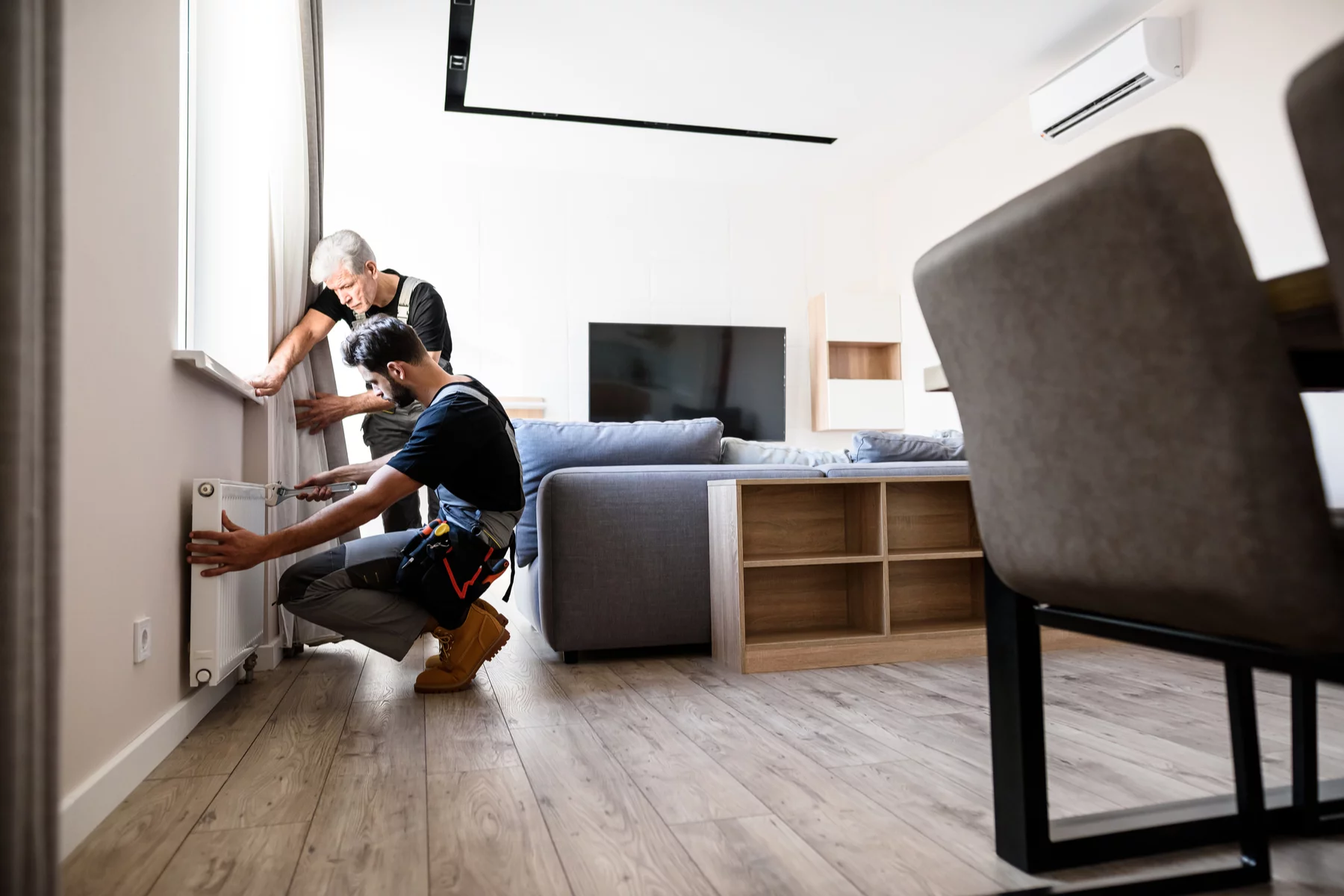
As a tenant in Belgium, you are legally allowed to keep pets in the house or sublet a room. However, you will need to get written consent from the landlord. There is also greater freedom to redecorate and improve the property. But once again, it is best to get the landlord’s permission before making any major changes. Otherwise, you may be required to return the property to its original state when moving out, or your landlord may keep your security deposit to pay for this.
Landlord rights and obligations
Landlords must give tenants at least six months’ notice before asking them to move out. Their reasons must be either that they intend to occupy the property themselves, want to let a family member or friend live there, or want to undertake major works. If they choose to break the contract for any other reason, they will need to pay the tenant several months’ rent. Additionally, in the case of a nine-year contract, the landlord can only break the contract at the end of each three-year period and not in between.
Landlords do have the right to an inspection of the property. However, they will need to get the tenant’s approval and inspect the house in the tenant’s presence. Furthermore, landlords are responsible for any major repairs. This includes replacing items subject to wear and tear or requiring upgrades, such as heating systems or fitting new windows. They are also obliged by law to provide smoke detectors on the rental property.
Where to go in the event of a dispute
In the case of a dispute or disagreement between a tenant and a landlord, the local or regional tenants’ association (Dutch: huurdersbond, French: syndicats de locataires) can provide advice and act as a mediator. If the dispute is impossible to resolve, it will have to be decided by the courts.
Utilities and telecommunications in Belgian rentals
Utilities and telecommunications services in Belgium are not included in the base rent. Tenants are required to pay for these separately. If your landlord takes the responsibility for arranging these for you, the tenancy agreement should have the costs of these clearly specified. In other cases, you will have to set up accounts and subscriptions for these services yourself.
You can read more about this in our articles on setting up your home utilities and setting up a home phone, TV, and internet connection in Belgium.
Moving in and moving out
When moving in or out of a rental property in Belgium, it is important to check the inventory report that was drawn up at the start and end of the lease. The inventory report contains a description of:
- the state of the fixtures and fittings
- the cleanliness and condition of the decoration
- any items missing or in need of repair
Make sure to report any inaccuracies, as you may be charged to replace missing items or repair damages. It is also a good idea to keep a detailed account (including costs and receipts) of work you do or pay for, to assist you in getting your deposit back when you leave.

You will also be required to clean the property before vacating it. Furthermore, you will need to fulfill your tenant obligations for maintenance. This includes getting the water boiler checked and making sure the smoke detector has new batteries. The deposit will be refunded after all these obligations have been met and the charges (if needed) for repair have been determined and settled.
In the case of a dispute or if the landlord refuses to release the deposit, you can contact the local or regional tenants’ association for advice. You can also approach specialized landlord and tenant lawyers to seek legal help.
Renting out your home in Belgium
The easiest way to rent out your home in Brussels is to hire an estate agent. You will need to pay them a commission, which is usually the first month’s rent. In return, the agent will arrange viewings, check tenants’ documentation, prepare and register the tenancy agreement, and arrange the inventory survey. They will also provide you with information on the tenant and landlord obligations.
Notably, if you are renting your house on your own, you will need to arrange all of this yourself. To find tenants, you can advertise your property on online portals, such as Immoweb. You can also find model tenancy agreements on the websites of the different regional housing boards (in Dutch and French). You will need to make sure you meet all the landlord obligations set out in the regional housing codes for Brussels, Flanders, and Wallonia.
It is important to be aware that failure to meet these obligations could result in legal action. In case of an unresolvable dispute with the tenant, you can approach specialized landlord and tenant lawyers for legal help. Furthermore, as a landlord in Belgium, you will be required to pay tax on your rental income. You can find more information on this in our article on taxes in Belgium.
Tips for renters in Belgium
- Approach different estate agents to widen the net when searching for a place to rent. You won’t need to incur any costs for this as estate agent commissions are paid by landlords.
- Don’t hand over the rental security deposit in cash; set up a bank transfer for this
- Make sure that the rental deposit is secured in a blocked account in your name. Ask the landlord to open the account with a known financial institution, such as Korfine or KBC.
- If you require help with advancing the rental deposit, apply for a zero-interest loan at your regional housing fund
- Check everything on the inventory report and let the landlord know if there are inaccuracies before signing. Take pictures of the existing condition of furnishings to include in the report.
- Get written consent from your landlord if you intend to keep pets in the apartment
- Take the meter readings for gas, electricity, and water when you move in and when you move out. This can help avoid errors so that you don’t end up paying for others’ use of the utilities.
- You will be required to maintain the water boiler and smoke alarms as a tenant. Check that these are in good condition before you move in.
- Belgium has fixed rules for Brussels, Flanders, and Wallonia regarding contract durations and penalties. Make sure your landlord follows these.
- If you encounter any issues with your landlord, get in touch with the local tenants’ association
Useful resources
- Flemish renters’ platform (in Dutch) – provides model tenancy agreements, FAQs, and contact details of local tenants’ associations
- Brussels and Wallonia tenants’ association (in French) – provides model tenancy agreements, information on the regional housing code, news, and advice to tenants
- Public Welfare Center Brussels (in Dutch and French) – government agency providing housing support and information to Brussels residents
- Brussels Commissioner for Europe and International Organizations (in English) – website of the international commissioner of Brussels offering information related to housing
- Renting in Flanders/Belgium (in Dutch) – Flemish government website providing detailed information on rental regulations and practices in Belgium
